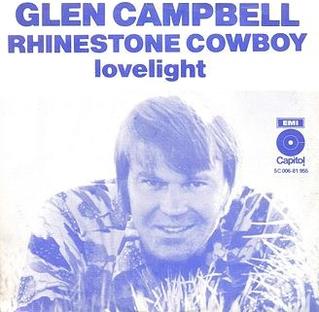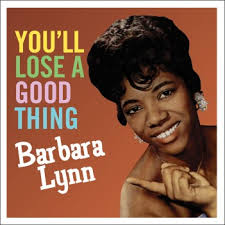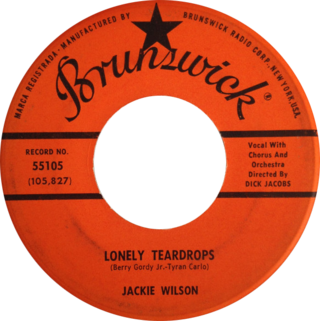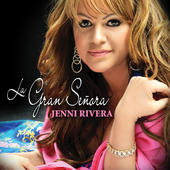
Freddy Fender was an American Tejano singer-songwriter, known for his work as a solo artist and in the groups Los Super Seven and the Texas Tornados. His signature sound fused country, rock, swamp pop and Tex-Mex styles.

"I Will Always Love You" is a song written and originally recorded in 1973 by American singer-songwriter Dolly Parton. Written as a farewell to her business partner and mentor Porter Wagoner, expressing Parton's decision to pursue a solo career, the country single was released in 1974. The song was a commercial success for Parton, twice reaching the top spot of Billboard Hot Country Songs: first in June 1974, then again in October 1982, with a re-recording for The Best Little Whorehouse in Texas soundtrack.

"Islands in the Stream" is a song written by the Bee Gees and recorded by American country music artists Kenny Rogers and Dolly Parton. It was released in August 1983 as the first single from Rogers's fifteenth studio album Eyes That See in the Dark. The Bee Gees released a live version in 1998 and a studio version in 2001.
This is a list of notable events in country music that took place in the year 1975.

"I Can't Stop Loving You" is a popular song written and composed by country singer, songwriter, and musician Don Gibson, who first recorded it on December 3, 1957, for RCA Victor Records. It was released in 1958 as the B-side of "Oh, Lonesome Me", becoming a double-sided country hit single. At the time of Gibson's death in 2003, the song had been recorded by more than 700 artists, most notably by Ray Charles, whose recording reached No. 1 on the Billboard chart.

"Rhinestone Cowboy" is a song written and recorded by Larry Weiss in 1974, then popularized the next year by American country music singer Glen Campbell. When released on May 26, 1975, as the lead single and title track from his album Rhinestone Cowboy, it enjoyed huge popularity with both country and pop audiences.

"What a Diff'rence a Day Made", also recorded as "What a Difference a Day Makes", is a popular song originally written in Spanish by María Grever, a Mexican songwriter, in 1934 with the title "Cuando vuelva a tu lado" and first recorded by Orquesta Pedro Vía that same year. A popular version in Spanish was later recorded by trio Los Panchos with Eydie Gormé in 1964.

Before The Next Teardrop Falls is an album by Freddy Fender.

Are You Ready for Freddy? is an album by Freddy Fender. It was released in 1975 on Dot Records and is a collaboration between the singer and producer Huey P. Meaux.

"Wasted Days and Wasted Nights" is an American country and pop song recorded by Freddy Fender. It is considered by many to belong to the swamp pop idiom of south Louisiana and southeast Texas that had such a major musical impact on Fender.

"You'll Lose a Good Thing" is a popular song written by rhythm and blues artist Barbara Lynn Ozen, who, performing as Barbara Lynn, scored a 1962 Top 10 hit, peaking at #8 and also the number 1 spot on the R&B charts, with her bluesy rendition of the song.

"Lonely Teardrops" is a song written by Berry Gordy Jr., Gwen Gordy and Roquel "Billy" Davis, first recorded and released as a single in 1958 by R&B singer Jackie Wilson, on the Brunswick label. The single was commercially successful, reaching the top ten on the Billboard Hot 100, and number-one on the R&B chart. It is ranked as the 57th biggest U.S. hit of 1959.
"Share Your Love with Me" is a song written by Alfred Braggs and Deadric Malone. It was originally recorded by blues singer Bobby "Blue" Bland. Over the years, the song has been covered by various artists, most notably Aretha Franklin who won a Grammy Award for her 1969 rendition. Other artists who covered the song include The Band in 1973, Kenny Rogers in 1981, and most recently, Van Morrison in 2016.

"Then You Can Tell Me Goodbye" is a song written by John D. Loudermilk. It was first released in 1962 by Don Cherry, as a country song and again as a doo-wop in 1967 by the group The Casinos on its album of the same name, and was a number 6 pop hit that year. The song has since been covered by Eddy Arnold, whose version was a number 1 country hit in 1968, and by Neal McCoy, whose version became a Top 5 country hit in 1996.

La Gran Señora is the tenth major label studio album by regional Mexican singer Jenni Rivera, released on December 1, 2009, by Fonovisa Records. It has sold 112,000 copies in the United States as of November 2011. It was named the best-selling Regional Mexican Album of 2010 by Billboard.
Benjamin James Peters was an American country music songwriter who wrote many #1 songs. Charley Pride recorded 68 of his songs and 6 of them went to #1 on the American country charts. Peters was inducted into the Nashville Songwriters Hall of Fame in 1980.
"The Rains Came" is a song written by Huey P. Meaux and originally recorded by Big Sambo and the House Wreckers in 1962, reaching #74 on the Billboard Hot 100 chart that year.
Randy Cornor was an American country music singer, songwriter, and guitarist. He is known primarily for his work in the field of country music.

Color Me Country is a studio album by American country music artist Linda Martell. It was released in August 1970 via Plantation Records and was produced by Shelby Singleton. The album contained three charting singles by Martell, including her cover of "Color Him Father". The album also reached a charting position following its original release. Color Me Country was the only album released in Martell's music career. It has since been reissued in several formats and has received positive reviews since its original release date.













